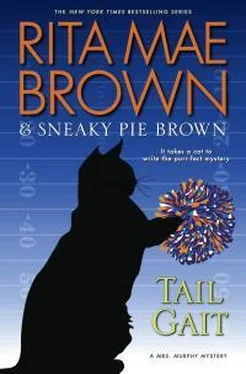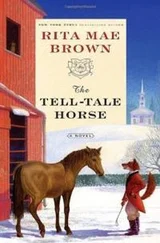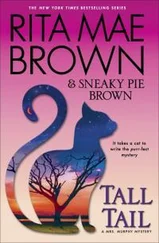“Offensive but harmless,” Harry concurred.
“The Downtown Mall isn’t my beat. The Charlottesville police will pick him up, I’m sure.”
Harry laughed. “Wouldn’t it be funny if Frank stood on the county/city line? You all would come for him, he’d step into the city. And vice versa.”
Cooper smiled. “One of these days, I swear it will happen.”
In Virginia, cities are incorporated, having their own law enforcement, mayor, city commissioners. Counties had sheriff’s departments and a board of county supervisors. Often the towns weren’t large enough in the counties to have mayors. Some did, some didn’t, but the county courthouse was always the hub. Confusing as the system might be, it worked for Virginians, and Virginians were quick to note they had managed since 1624.
Each of the original thirteen colonies kept their systems. Pennsylvania had townships, for instance. And not one of those former colonies would change its ways. As one moved westward, in theory, those states became easier to govern, or at least more streamlined. This fiction was easily exploded when a state squared off against the federal government. The attorney general of Missouri would fight just as hard as the attorney general of Virginia if he or she felt the clumsy hand of Washington squeezing its citizens or its coffers.
Made life interesting.
Tucker joined them at the alcove, looking up at Cooper with an expression of saintliness. “Might you have more bones?” asked the dog.
“Ignore her, Coop.”
“Oh, how can I? And it just so happens, now that I think of it, I bought some greenies. Plus I have a tuna bomb for the cats.” No sooner did Cooper distribute these treats than the three creatures entered a state of bliss.
Coop sat back down at the kitchen table. “Do you want anything? I actually have deviled eggs.”
“Oh, thanks, no. I ate my way through the reception.” Harry paused. “I’ll miss Ginger. He and Trudy were friends of Mom and Dad. I know you have to be, uh, careful about sharing information, but have you learned anything at all?”
Cooper looked into her teacup. “Not a damn thing.”
“I keep thinking it was a mistake,” said Harry. “Maybe the bullet was meant for someone else.”
“No way.”
“Yeah, I’m afraid you’re right, but Ginger’s death was like a bolt out of a clear blue sky. There’s no sense to it.” She finished her tea.
“We’ve investigated the Hemings angle, and then the uproar over blacks, then women being admitted to UVA in 1972. Yes, Ginger got a few folks angry, but those that signed letters to the editors from that time are mostly dead.” She stopped for a moment. “Except for Carroll Kruger, who, about ninety, I figure, held forth on how admitting blacks and women to the University of Virginia has ruined— ruined, mind you—that once great institution and he will never give them a dime.”
“He’s pretty rich.” Harry tapped the edge of her cup. “Do you think you ever completely eradicate prejudice?”
“No, but it’s only the ancient and the cranks who cling to race and all this sex stuff. I think we’re beyond that, most everyone. But, you know, something else will take their place, some new category of outrage.”
“Solves nothing and hurts many. And that’s what I keep coming back to, Ginger never hurt anyone.”
“Frank Cresey.”
“Okay, but Frank didn’t kill him.” Harry leaned back against the cushion on the alcove booth. “The only thing I can think of is it’s some form of academic anger, revenge. Far-fetched. His research consumed his life. Maybe he stepped over into someone’s territory and Ginger got the credit they thought should have come to them or he wrote about a subject first. I know professors and doctors are incredibly competitive regarding their research.”
“We thought of that, Harry.” Coop held up her hands, empty.
“When you combed through his desk at home and then at UVA, what was he working on?”
“I’m not a scholar. I don’t know what’s significant or not. He had old maps. Trudy said he would consult the maps of the time because that was what the people used. She said how Ginger praised those early brave surveyors. Uh.” She tapped her forefinger on the table. “There were some first-person memoirs of the Battle of Saratoga and prisoner-of-war camps, and materials on old roads. Professor Brinsley Sims has been a big help. He went through everything and said he didn’t find anything incendiary, for lack of a better word.”
“When the department is finished, might I look?”
“I’ll ask Rick, but why?”
“I’m born and bred here. I might be able to pick something up, you know, from his going through old family Bibles.”
“Harry, what could that have to do with Ginger’s murder?”
“Maybe an old crime provoked a new one.”
“It would have to be a very old crime.”
“Maybe, but then again, it kept being brought forward, in ways we don’t understand but Ginger did. I can’t think of anything else. And I know it’s out there, but, okay, think of this. The Constitution says that in order to be president of this country, you must be born here. Ever wonder why?”
“No. I figured it was one more rule, like initially only giving the vote to white male property owners.”
“Aha! You do know some history.”
Cooper smiled. “Enough to know the fussing and fighting will never end.”
“There is that.” Harry’s animals came over and flopped down, though they were listening. “If the presidency were available to a naturalized citizen, of course that person’s early years would have been somewhere else. Our Founding Fathers knew the experience of the New World was just that: A person from another place, from Europe, no matter how brilliant, ought not be trusted with being our chief executive. They can hold any other office, but not that one. You have to be of this soil.”
“Never thought of that.”
“They did, because they saw how feudal past continued to affect Europe even in the eighteenth century, and really even today. We were born of the Enlightenment. No feudal past. We truly are significantly different from Europe and Asia.”
“Well, okay.”
“See, these were the kind of conversations Ginger would have. The man just loved what he did. It spilled over and out of him, and he was never pedantic or boring at it.”
“The past is prologue,” Cooper repeated the famous axiom.
“The past can kill you.”
Cooper looked at Harry, then said, “I’ll see what I can do. I have nothing else to go on.”
“Good. It will keep me off the streets at night.”
Mrs. Murphy said to Pewter and Tucker, “No, it won’t. When she gets like this, she—”
Pewter interrupted. “Fools rush in where angels fear to tread.”
Mrs. Murphy thought Pewter might be onto something for once. After all, there weren’t too many angels in Virginia.

September 7, 1780
Gorgeous early fall weather made up for the work in a sweltering summer. No one complained about the labor. Two Hessian prisoners of war had broken their ankles sliding down as they worked to ease the grade on Ewing Garth’s wagon road. Other than that, no injuries.
At three in the afternoon, tired men picked up their tools. The walk back to their barracks would take forty-five minutes. Captain Schuyler pulled his horse out of the stables, where Garth allowed him to put the sturdy fellow.
Captain Schuyler unrolled the light blanket across the horse, then rolled it up, throwing it across the front of the saddle. “Almost done for the day.”
Читать дальше













